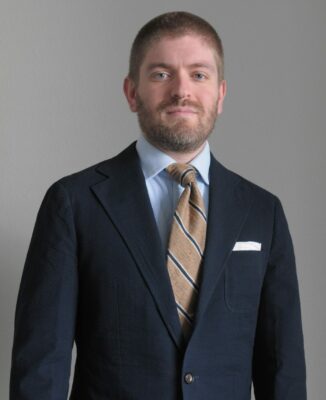Posted on June 20, 2023 by Rebekah Alegria
 His most recent paper, “A Racialized View of Entrepreneurship: A Review and Proposal for Future Research,” was published in the Academy of Management Annals earlier this year. He evaluated over 100 articles that addressed entrepreneurship and race, looking for clues as to why minority entrepreneurs are disadvantaged despite the widespread support for their endeavors. He also challenged academic researchers to consider race and include racialized structures in their theories in order to uncover the underlying structural racial disadvantages for underrepresented minority (URM) entrepreneurs. URMs are ethnic and racial groups whose identities and interests are underrepresented in positions and social power and influence.
His most recent paper, “A Racialized View of Entrepreneurship: A Review and Proposal for Future Research,” was published in the Academy of Management Annals earlier this year. He evaluated over 100 articles that addressed entrepreneurship and race, looking for clues as to why minority entrepreneurs are disadvantaged despite the widespread support for their endeavors. He also challenged academic researchers to consider race and include racialized structures in their theories in order to uncover the underlying structural racial disadvantages for underrepresented minority (URM) entrepreneurs. URMs are ethnic and racial groups whose identities and interests are underrepresented in positions and social power and influence.
“Business schools play a significant part in the social construction of how we understand entrepreneurship and are often—as is increasingly the case with the Alvarez College of Business—very involved in regional entrepreneurial ecosystems. We have an opportunity to play a big role in unlocking the potential of entrepreneurship to uplift those who need it most, particularly here in San Antonio,” stated Lewis.
A Houston native, Lewis spent his developmental and academic years here in San Antonio. Receiving his undergraduate degree in economics from Trinity University and his master’s and Ph.D. from UTSA, he cherishes the opportunity to give back to the city through his research and professional role teaching at the undergraduate, graduate and Ph.D. levels at the Alvarez College of Business.
Recognizing entrepreneurship’s potential to uplift groups most subject to structural disadvantages, Lewis’ interest in entrepreneurship blossomed. Honing his newfound passion further, he also recognized society’s inability to tap into the immense potential of minority business venturing.
In his research, he looked at structural disadvantages like credit scores and their affect on minority entrepreneurs. “This disadvantage is built into the social structures in the United States, often seen in social processes and perpetuates the cycle of inequality amongst URMs,” he said. “Identifying that there are structural biases in society is the first step in stopping the reproduction of racial inequality in entrepreneurship.”
Lewis also looks at building bridges between inclusive entrepreneurship and marginality within business. He calls on business leaders to build processes in which new structures are generated, resulting in historically marginalized groups being able to build up their businesses and better the process of racial agency in market systems.
Echoing themes in the writings of W.E.B. DuBois and Booker T. Washington over a century ago, Lewis’ observations are integral to unlocking the potential of entrepreneurship to uplift groups subject to structural disadvantages. Lewis also sees his research as beneficial to the college and the city of San Antonio as a whole.
“I am hopeful about what my teachings and observations can do for both the Carlos Alvarez College of Business and San Antonio, one of the most economically and ethnically segregated cities in the country,” stated Lewis.
With societal advancement for all in the forefront of his mind, Lewis’ research aims primarily to emphasize the importance of critically examining the social systems that structure entrepreneurship in the business world.
Continuing on the topic of inclusive entrepreneurship, Lewis is currently working on constructing a lab with City University of New York faculty member Ouafaa Hmaddi which will fund and coordinate field experiments to examine how entrepreneurship can be more inclusive.

